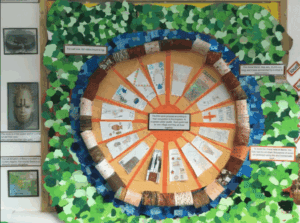General Statement
Within the Christian context of the Blue School, we perceive History to be an essential part of children’s education, in the development of their thinking and learning skills, enabling them to develop a sense of personal identity and an understanding and respect for other cultures and points of view. It helps them to appreciate the problems of the past and how attempts were made to deal with them. It helps them to understand the bearing that the past has on the present and the future. To be a good historian, children need to know about sources, to gather evidence and to reflect critically on the material they have gathered.


